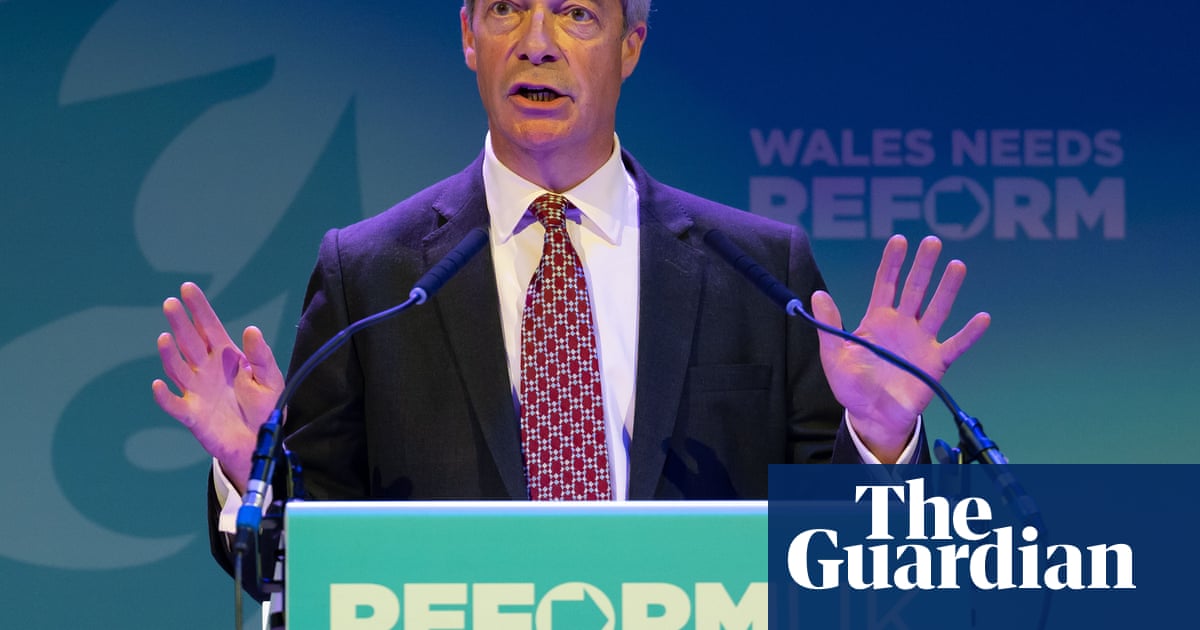Nigel Farage has demanded the reopening of domestic coalmines to provide fuel for new blast furnaces, arguing that Welsh people would happily return to mining if the pay was sufficiently high.
Speaking at an event in Port Talbot, the south Wales town traditionally associated with the steel industry, the Reform UK leader said it was in the “national interest” to have a guaranteed supply of steel, as well as UK-produced fuel for the furnaces, a close echo ofDonald Trump’s repeated pledgesto return heavy industry to the US.
Pressed on whether this was a realistic plan, particularly given that even ifWalesdid elect a Reform-run Senedd next May it could be blocked by Westminster, Farage conceded that the idea was most likely only realistic if done in conjunction with the national government.
“Our belief is that for what uses coal still has, we should produce our own coal,” he told the event, intended to boost Reform’s prominence in Wales in the run-up to next year’s elections.
“I’m not saying, let’s open up all the pits. What I am saying is there is coal, specific types of coal for certain uses, that we still need in this country, and we certainly will need for the blast furnaces here, that we should produce ourselves rather than importing.
“We are going to be using more steel over the next few years than we probably ever used, as we increase military spending and as we attempt a housebuilding programme … We are going to need a lot of steel. Our belief is we should be producing our own steel.”
Asked during a media Q&A how long it would take to reopen defunct blast furnaces such as the Tata steel plant in Port Talbot whichshut last year, and if this was even possible, Farage accepted it would be difficult, needing “a change of mindset”.
He said: “Nothing’s impossible, but it might be difficult. It might be easier to build a new one.”
Quizzed on what evidence he had that young Welsh people would want to go down coalmines, Farage replied: “If you offer people well-paying jobs, you’d be surprised. Many will take them, even though you have to accept that mining is dangerous.”
Pressed then on whether even a Reform-runWelsh governmentcould not achieve this alone, Farage accepted this was probably the case: “It’s difficult to know just how much leverage the Welsh government can have over these things. It probably needs to work in conjunction with a national government. It needs a complete change of philosophy. It needs a scrapping of net zero.”
A YouGovpoll last monthof voting intentions in Wales found Plaid Cymru leading with 30%, but Reform on 25%, ahead of Labour and the Conservatives.
In his speech, Farage said Reform “hit a speed bump last week” with thesudden resignationof Zia Yusuf as the party’s chair, although Yusuf did subsequently say he would return to carry on leading efforts to find costs to cut in Reform-run councils.
Farage denied that he repeatedly falls out with colleagues, saying some people had worked with him for 25 years, and that he was still friends with former employees from his City of London metals trading job in the 1990s.
But he added: “I am someone that maintains long-term friendships, and I’ll do that, but if ever anybody talks behind my back, or if anybody betrays that trust, then I’ll never speak to them again. Quite simple, and they should expect the same level of trust back from me.”
